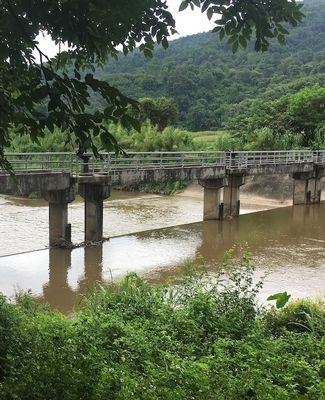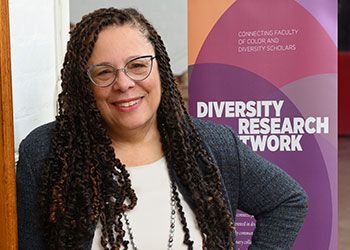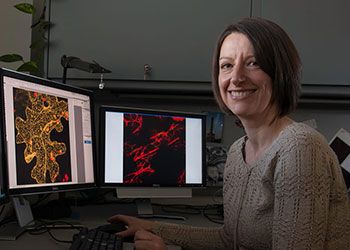Fostering Environmental Justice in Southeast Asia
The Mekong Culture WELL project will integrate satellite and local mapping of the Mekong River to determine how climate change and hydropower damming are reshaping communities in downstream regions.

Fostering Environmental Justice in Southeast Asia
The Mekong Culture WELL project will integrate satellite and local mapping of the Mekong River to determine how climate change and hydropower damming are reshaping communities in downstream regions.
July 23, 2020A Michigan State University interdisciplinary team of faculty and staff is working to foster environmental justice in Southeast Asia. The Henry Luce Foundation’s Initiative on Southeast Asia, or LuceSEA, is providing $1 million in funding to help create the Mekong Culture WELL project.
The Lower Mekong River Basin in mainland Southeast Asia is home to 60 million people in five countries — Laos, Myanmar, Thailand, Cambodia and Vietnam — with globally significant and diverse cultures, environments and economies. Political volatility, climate change and development pressures such as hydropower damming are challenging WELL (water, ecology, land and livelihoods) security in the region.
“We are grateful for the partnership of the Luce Foundation, which will help us expand work that is critical to forging sustainable and just futures in Southeast Asia and beyond,” said MSU President Samuel L. Stanley Jr., M.D. “MSU has long been a leader in seeking to meld science with humanities and the lived experiences of local communities. As in Michigan and around the world, indigenous communities in Southeast Asia have been profoundly affected by ongoing transformations to their environments, yet their critical leadership and perspectives have been overlooked for too long.”
The Mekong Culture WELL project will develop resources to build on and support MSU’s interdisciplinary education and research.
“The Mekong River sustains livelihoods and food production across Southeast Asia and, indeed, across the global food system,” said project lead Amanda Flaim, assistant professor in the James Madison College and the College of Social Science. “Therefore, political and ecological threats to the life of the Mekong constitute an issue of pressing global concern. Yet, xenophobic and authoritarian political agendas across Southeast Asia and in the U.S. are undermining global efforts to find and pursue solutions while simultaneously exacerbating vast and systemic inequalities. The need for truly collaborative, inclusive, and interdisciplinary research, education and outreach is urgent in order to address these dislocations in sustainable and just ways. This project draws strength from our diverse, international partners — including our international faculty and students here at MSU — and we are grateful to the Luce Initiative on Southeast Asia for supporting our collaboration.”
Educational initiatives advanced through the project include research assistantships and internships abroad, curricular enrichment in the form of documentary ethnography workshops and interdisciplinary training, and expanded Southeast Asia-focused courses. Thai and Khmer (Cambodian) language instruction will be added to MSU’s existing Vietnamese program.
The project will integrate satellite and local mapping of the Mekong River to determine how climate change and hydropower damming are reshaping communities in downstream regions. It will seek to convey how those communities can forge unique cultural visions of food and environmental justice.
“Stories of resistance, resilience, adaptation, knowledge and cultural connection must also feature prominently in any attempt to accurately convey the complexity and humanity of the people who call the Mekong region home,” Flaim said.
A Mekong Culture WELL website will explore interrelated issues of environmental justice in Southeast Asia and beyond, and serve as a resource for researchers, students, instructors, policymakers and journalists as well as Nongovernmental Organizations. The content will be available in Thai and Khmer.
The MSU-based team includes: Daniel Ahlquist, James Madison College; Dan Kramer, College of Agriculture and Natural Resources and James Madison College; Yadu Pokhrel, College of Engineering; Siddharth Chandra, director of the Asian Studies Center; and Zoë McLaughlin, MSU’s South and Southeast Asia librarian. Administrative support provided by Lynn Lee and Justin Burkett in James Madison College. The project is supported by MSU’s Asian Studies Center, International Studies and Programs. The Center for Global Change and Earth Observation leads two NASA-funded projects that the Mekong Culture WELL project will build upon.
In addition to engaging faculty, students, and staff from diverse units within MSU, the project forges collaborations with UNESCO, the Mekong River Commission, documentarians, indigenous activists and scholars at institutions in Southeast Asia and New Zealand. Partners include: scholars Apisom Intralawan, Mae Fah Luang University, Thailand; Chayan Vaddhanaphuti and Chusak Witthayapak, the Regional Center for Social Science and Sustainable Development, Chiang Mai University, Thailand; Sopheak Chann, Royal University of Phnom Penh, Cambodia; Alice Beban, Massey University, New Zealand; and Heather Peters and David Feingold, Ophidian Research Institute, Thailand/U.S. Global documentarians Ore Huiying, of Singapore, and Kalyanee Mam of Cambodia and the U.S., will lead workshops for students and faculty at MSU and abroad. Central to all activities will be input from and ongoing collaborations with indigenous leaders in the region like Chutima ‘Miju’ Morlaeku.
“The Mekong Culture WELL project, led by Dr. Flaim and her team in collaboration with partners in Southeast Asia, will provide much needed information and insights on the impacts of public and private sector development programs on the environment and peoples of the Mekong region,” said James Madison College Interim Dean Linda Racioppi. “I’m delighted that Madison faculty are at the forefront of work that will inform policy and promote social justice for the area’s indigenous and marginalized peoples.”
The Henry Luce Foundation seeks to enrich public discourse by promoting innovative scholarship, cultivating new leaders, and fostering international understanding. Established in 1936 by Henry R. Luce, the co-founder and editor-in-chief of Time Inc., the Luce Foundation advances its mission through grantmaking and leadership programs in the fields of Asia, higher education, religion and theology, art and public policy. The goal of the Luce Initiative on Southeast Asia (LuceSEA) is “to strengthen the study of Southeast Asia in American higher education by providing resources for the creation of models, strategies and partnerships that not only bolster existing program structures but also take them in new directions, contributing in the process to both institution and field building.”




